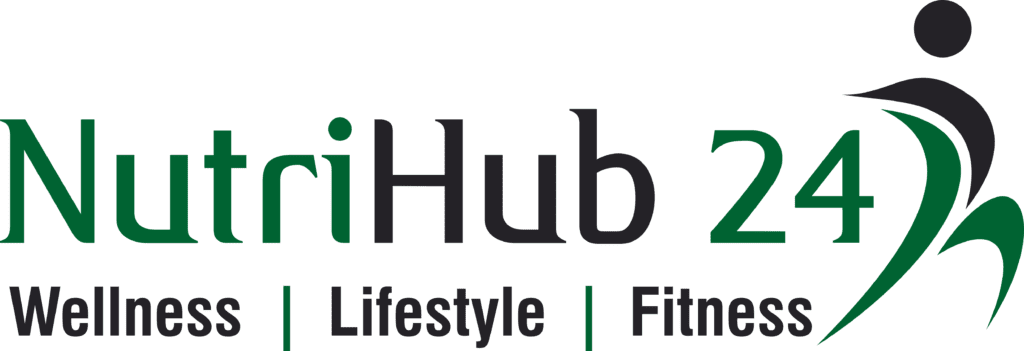Pre and post-workout nutrition plays a crucial role in supporting your strength training goals. Proper fueling before and after your workouts can optimize performance, enhance recovery, and promote muscle growth. In this comprehensive guide, we will discuss the importance of pre and post-workout nutrition for strength training and provide practical recommendations to help you maximize your training results.
Part 1: Pre-Workout Nutrition
The pre-workout meal is essential for providing your body with the energy it needs to perform at its best during your strength training sessions. Here are some key factors to consider when planning your pre-workout nutrition:
Macronutrient balance:
Carbohydrates: Carbs are the primary fuel source for high-intensity exercise. Consuming adequate carbs before your workout ensures optimal glycogen stores in your muscles, improving endurance and performance. Good carbohydrate choices include whole grains, fruits, and starchy vegetables.
Protein: Protein is crucial for muscle repair and growth. Including a moderate amount of protein in your pre-workout meal can help support muscle protein synthesis during and after your training. Sources like lean meats, poultry, fish, eggs, and plant-based options like legumes and tofu are excellent choices.
Fat: While fat is important for overall health, it’s advisable to keep fat intake relatively low before your workout. Fats take longer to digest and may cause discomfort during exercise.
Healthy Fats: Healthy fats provide a concentrated source of energy and aid in the absorption of fat-soluble vitamins. Including a small amount of healthy fats in your pre-workout meal can help sustain energy levels. Good sources of healthy fats include avocados, nuts, seeds, and olive oil.
Example Pre-Workout Meal:
A well-balanced pre-workout meal could consist of the following:
- Grilled chicken breast
- Brown rice
- Steamed broccoli
- Mixed green salad with olive oil dressing
Alternatively, if you prefer a smaller snack before your workout, you could consider:
- Greek yogurt with berries
- A small handful of almonds
Timing:
The timing of your pre-workout meal is important to allow for proper digestion and nutrient absorption. Aim to eat a balanced meal containing carbs and protein 2-3 hours before your workout.
If you’re short on time, consume a smaller snack or liquid meal containing easily digestible carbs and a small amount of protein 30-60 minutes before your workout.
Hydration:
Adequate hydration is vital for optimal performance. Begin hydrating well before your workout and continue to drink fluids throughout your session.
Consume water or a sports drink containing electrolytes to replace fluids lost through sweat.
Sample Pre-Workout Meal/Snack Options:
Whole grain toast with peanut butter and sliced banana.
Grilled chicken breast with quinoa and steamed vegetables.
Greek yogurt with mixed berries and a drizzle of honey.
Protein shake made with whey protein powder, almond milk, and a banana.
Part 2: Intra-Workout Nutrition
During your strength training session, it’s crucial to stay hydrated and maintain adequate energy levels. Here are some tips for optimizing your intra-workout nutrition:
Hydration:
Continue to drink fluids throughout your workout, especially if it’s intense or lasts longer than an hour.
Sip on water or a sports drink containing electrolytes to replenish fluids and maintain electrolyte balance.
Example Post-Workout Meal:
A well-balanced post-workout meal could consist of the following:
- Grilled salmon
- Quinoa
- Roasted sweet potatoes
- Steamed asparagus
- A fruit smoothie with whey protein powder
Alternatively, if you prefer a quick post-workout snack, you could consider:
- A protein shake made with milk or water
- A banana
- A handful of almonds
Carbohydrate supplementation (optional):
For long, intense training sessions, consuming carbohydrates in the form of sports drinks, gels, or chews can help sustain energy levels.
These products provide easily digestible carbs that can be rapidly absorbed and utilized by your muscles.
Part 3: Post-Workout Nutrition
After your strength training session, your body requires nutrients to kickstart the recovery process. Proper post-workout nutrition can help replenish glycogen stores, reduce muscle protein breakdown, and promote muscle repair and growth. Consider the following factors for effective post-workout nutrition:
Protein:
Consuming an adequate amount of protein after your workout is essential for muscle protein synthesis.
Aim for 20-30 grams of high-quality protein from sources like lean meats, poultry, fish, eggs, dairy products, or plant-based options like legumes and tofu.
Carbohydrates:
Replenishing glycogen stores is critical after intense strength training.
Include easily digestible carbohydrates in your post-workout meal to maximize glycogen replenishment. Good options include fruits, rice, potatoes, or whole-grain bread.
Timing:
To optimize recovery, aim to consume your post-workout meal or snack within 1-2 hours after your training session.
This window is when your muscles are most receptive to nutrient uptake, promoting faster recovery and muscle growth.
Sample Post-Workout Meal/Snack Options:
Grilled salmon with sweet potato and steamed vegetables.
Whole grain wrap with lean turkey, avocado, and mixed greens.
Quinoa salad with grilled chicken, cherry tomatoes, and cucumbers.
Smoothie made with protein powder, almond milk, spinach, and mixed berries.
Part 4: Additional Considerations
Individualization:
The recommendations provided serve as general guidelines, but it’s important to tailor your nutrition plan to your specific needs and preferences.
Experiment with different foods and timing to determine what works best for your body and performance.
Supplements:
While not essential, certain supplements can complement your pre and post-workout nutrition.
Creatine monohydrate, for example, has been shown to improve strength and power in high-intensity activities.
Consult with a healthcare professional or registered dietitian before considering any supplements.
Hydration:
Hydration is crucial both before and after your workouts.
Drink water regularly throughout the day, and consider weighing yourself before and after training to monitor fluid losses.
Consistency and Overall Diet:
Pre and post-workout nutrition are essential, but they should be seen as part of a well-rounded, balanced diet.
Pay attention to your overall nutrient intake throughout the day to support your training and recovery.
In conclusion, proper pre and post-workout nutrition is vital for maximizing the benefits of your strength training program. By fueling your body with the right nutrients at the right time, you can enhance performance, support recovery, and promote muscle growth. Remember to individualize your approach, stay hydrated, and maintain a consistent and balanced diet to achieve optimal results.

